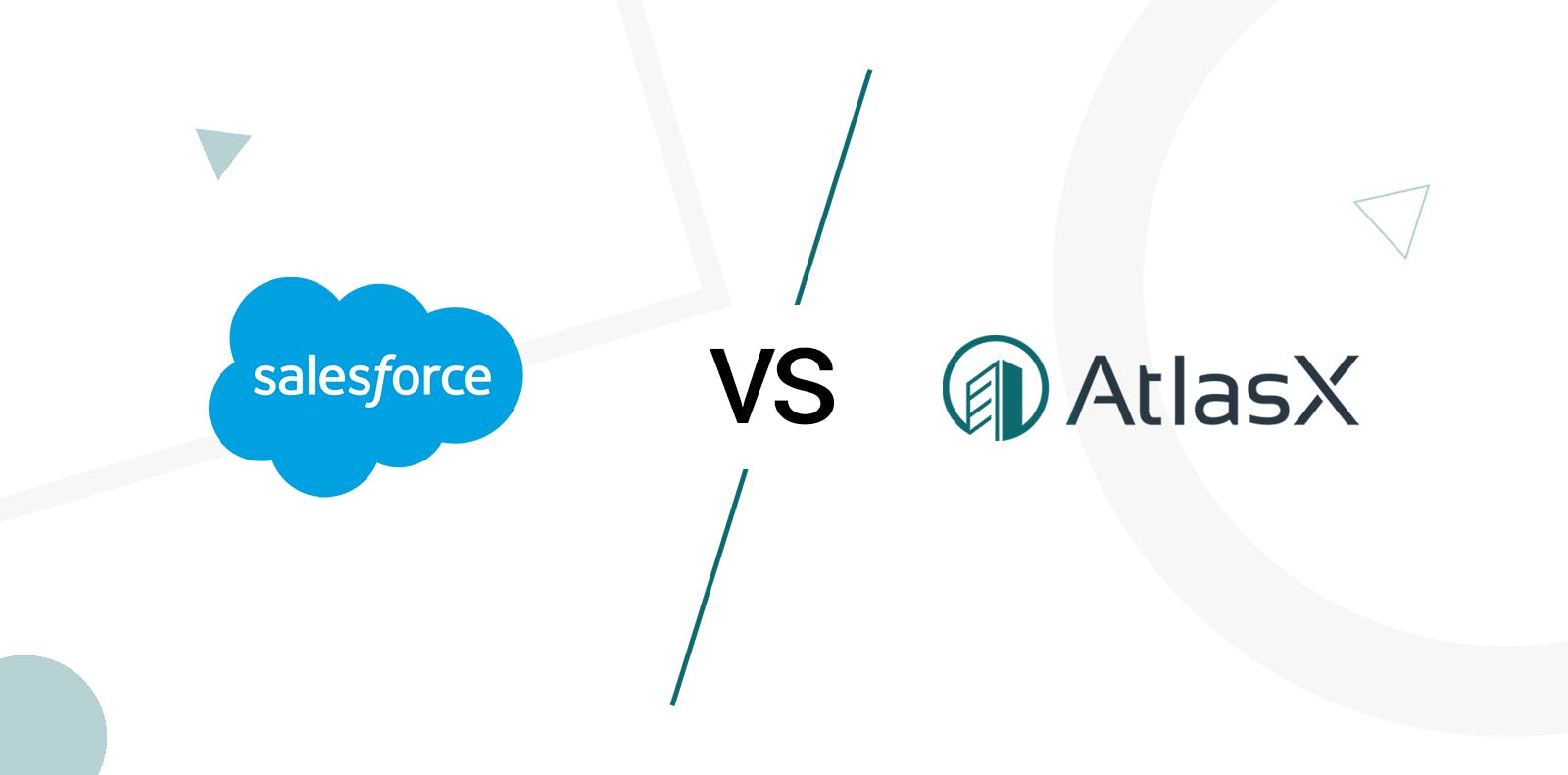Salesforce for Real Estate v. AtlasX: Why Targeting Industry Specific Needs is Necessary in Real Estate Deal Management
John Ledger

Spreadsheets, spreadsheets, spreadsheets. Microsoft and Google’s trademark organization systems have become an integral part of any commercial real estate investor’s deal flow management. But as portfolios, companies, and deals increase in volume, spreadsheets may no longer be an efficient way to manage a real estate pipeline.
Where do CRE investors look next? Towards the giants of workflow and customer relationship management: brand names like Monday.com, Salesforce, and Hubspot. After all, these systems have proven track records and a horde of satisfied clients to back them up. However, investing in these systems, especially within CRE investment, may be a short-term solution to a long-term problem. Generic systems like Salesforce do maintain a high level of applicability to a wide range of various industries, but at a stark cost: these “flexible” systems require constant maintenance, updates, and requirements planning, which can accumulate resources, time, and money quickly. A better solution for CRE investors lies in real estate deal management software: out-of-the-box, purpose-built software systems meant for CRE professionals.
What are CRE Investors Looking for in Real Estate Deal Management Software?
Real estate deal management software has one purpose: to make pipeline organization easier and more efficient. For different investors, this can mean different things, necessitating software that is customizable to each company and investor’s needs. In general, there are three main goals of deal management software. The first of these lies in tracking property statuses of relevant properties. CRE is a fast moving industry, and having up-to-date information is critical to success in acquiring and managing properties. Second, each deal presents a massive opportunity to collect market data insights to help inform future decision making. Any effective real estate deal management software must have a high focus on data collection, analysis, and reporting to be useful to CRE investors.
Finally, and maybe most importantly, firms and investors must collaborate both internally and externally to bring deals to a close. This critical last step is what runs the CRE industry: firms with the best information, data collection, and market analysis will never close a deal unless they can hone their collaboration skills. The culmination of these three goals of status tracking, insight collection, and internal/external collaboration create a comprehensive vision of deal management software.
Salesforce Real Estate Workarounds
Salesforce has built a brand around being useful to almost any application: its website alone lists 13 core industries that Salesforce serves. Tellingly, real estate is not one of those core industries, and for good reason: the capabilities necessary are just not feasibly met by the generic Salesforce product. To combat this gap in aptitude, Salesforce for real estate has a number of implementable workarounds that make the product more useful to CRE:
- Modify salesforce opportunities with tailored real estate custom fields
- Build custom objects used for relationship management in real estate deals such as tenants
- Modify contacts for tracking relationships with regional and national brokers
- Find apps in AppExchange for mapping, data enrichment, task workflows, and reporting
- Likely will need a Salesforce development agency with the expertise to build and deploy custom built solution
- Pre-built Salesforce solutions pose an alternative, but these solutions are typically built with a focus on brokers as opposed to investment management
These workarounds make Salesforce usable for Commercial Real Estate, but not particularly effective. Even after these implementations, constant updates, maintenance, and software management make the platform more trouble than it is worth and a continual drag on resources, time, and energy for the firm. These workarounds also make it more difficult to grow with the platform: as the firm expands, it will likely have to completely reinvent processes in Salesforce instead of updating current business systems.
AtlasX: Purpose-Built Real Estate Deal Management Software
AtlasX is a purpose-built real estate deal management software that uses AI, due diligence automation, task management, and data analysis tools to remain competitive as a best-in-class CRE software application. As an out-of-the-box CRE solution, AtlasX offers a robust set of functionality built for real estate that includes systems focused on properties, deals, rent rolls, underwriting models, and much more. Where Salesforce requires intense user customization to work-around gaps in a more generic software, AtlasX has the privilege of focusing entirely on commercial real estate, meaning that customization is already built out for each customer. Despite the lack of needed adjustments, AtlasX also allows customers to tailor the software to their specific investment strategy to retain a perfect fit. Without the need to plan requirements and focus on adjusting a solution, AtlasX can focus on the higher level specifics to make the software work even better for each firm.
Out-of-the-box solutions require little to no maintenance and add on-costs: AtlasX provides best-in-class features such as mapping and reports, AI data scraping tools that can create competitive advantages in traditionally inefficient data forms such as OMs, and auto-updates for underwriting. AtlasX even provides CRM capabilities: the AtlasX software has the ability to foster collaborations between broker, seller, vendor, and investor contacts, allowing seamless communication and integration across organizations. Finally, the AtlasX system is completely self-managed: without the need for excessive customizations, firms do not have to spend extra time working with development or system administrators because AtlasX’s implementation specialists take the project from end-to-end.
Salesforce for Real Estate v. AtlasX: The Final Analysis
In summary, this comparison comes down to usability and efficiency. It can be tempting to invest in platforms like Salesforce as a solution to CRE management needs, but these solutions are, at-best, short-term patches to long-term issues. Specialty software such as AtlasX simply have too much CRE horsepower to compete with in the long run. Less adjustments, workarounds, administrative work, and resources spent organizing the system means a more comprehensive, easier-to-use solution that saves time and money. When it comes to commercial real estate deal management software, the choice is clear.
To see how AtlasX can work for your organization, sign up for a product demo led by our real estate tech advocates.


